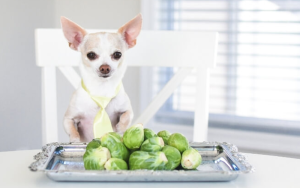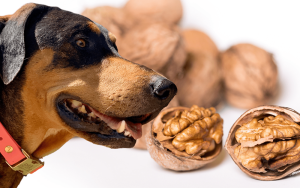Can Cats Eat Cilantro? A Complete Guide to Feline Nutrition and Herb Safety

When it comes to feeding our feline friends, it’s crucial to know which foods are safe and beneficial for them and which ones could potentially cause harm. While cats are obligate carnivores and require a meat-based diet to thrive, pet owners often wonder
about the safety of various herbs and plants. One herb that frequently piques curiosity is cilantro. Known for its distinctive taste and aromatic fragrance, cilantro is a common ingredient in many human dishes. But can cats eat cilantro? Is it safe
for them to consume this herb, or should it be avoided? This article delves into whether cilantro is safe for cats, its potential benefits, and risks, and provides practical advice for pet owners.
Understanding Cats’ Dietary Needs
Before discussing cilantro specifically, it’s essential to understand cats’ dietary needs. Cats, as obligate carnivores, primarily rely on animal-based proteins to get the essential nutrients they need for survival. Unlike humans or some other animals,
cats do not require a variety of fruits, vegetables, or herbs in their diet. In fact, feeding cats plant-based foods should generally be done with caution, as it can sometimes lead to digestive issues or toxicity, depending on the type of plant.
While many cats may nibble on plants out of curiosity, they do not derive significant nutritional value from them. Herbs like cilantro are generally not essential to a cat’s diet, but understanding their safety is important when considering whether they
should be allowed to sample such plants.
What is Cilantro?
Cilantro, also known as coriander in some parts of the world, is an herb that belongs to the parsley family. It is widely used in cooking, particularly in Mediterranean, Latin American, and Asian cuisines. Both the leaves and seeds of the cilantro plant
are edible, though they are used differently in cooking. The leaves, known for their fresh, citrusy flavor, are commonly used as a garnish or in salads. The seeds, which are ground into a spice known as coriander, have a more pungent, earthy flavor
and are typically used in cooking.
Cilantro is rich in vitamins, antioxidants, and essential oils, which are beneficial to human health. It’s often used in detox diets due to its purported ability to help remove heavy metals from the body. However, while cilantro has various health benefits
for humans, cats have different nutritional needs, so it’s important to understand whether this herb is suitable for them.
Can Cats Eat Cilantro?
The simple answer is yes, cilantro is generally safe for cats in small amounts. While it is not toxic to cats, it should not make up a significant part of their diet. Most cats will not find cilantro particularly appealing, given their
preference for meat-based foods, but some might be curious and try it. As with any food that is not part of a cat’s usual diet, moderation is key.
Here are some considerations to keep in mind:
-
Non-toxic to Cats: Cilantro is not toxic to cats, unlike other herbs and plants, such as garlic, onions, or chives, which can be harmful to felines. This makes cilantro a relatively safe choice if your cat happens to nibble on
a few leaves.
-
Digestive Sensitivity: While cilantro is safe, some cats may have sensitive stomachs and could experience mild gastrointestinal upset, such as vomiting or diarrhea, after eating cilantro. If you notice any digestive issues after
your cat eats cilantro, it’s best to stop offering it and consult a veterinarian.
-
Small Quantities: If you want to give your cat cilantro, offer only a small amount as an occasional treat. A few leaves or a small sprig should suffice. Overconsumption could lead to stomach discomfort or mild digestive issues.
-
Cilantro in Cooked Foods: If your cat eats cilantro as part of a cooked dish, make sure it hasn’t been mixed with any harmful ingredients like garlic, onion, or excessive amounts of salt, which are toxic to cats. Always check
for potential hazards in prepared food before offering it to your pet.
Health Benefits of Cilantro for Cats
While cilantro does not provide the essential nutrients that a cat needs for its primary diet, it can offer some potential health benefits when given occasionally. Here are a few reasons why cilantro might be a good herb for your cat:
-
Antioxidants: Cilantro is rich in antioxidants, which can help protect the body from oxidative stress. These antioxidants can potentially help boost your cat’s immune system and promote general well-being. However, keep in mind
that cats do not require antioxidants from plant-based sources, as their primary need is animal-derived nutrients.
-
Digestive Aid: Cilantro is sometimes used in traditional medicine as a digestive aid. For some cats, a small amount of cilantro may help relieve minor digestive issues or promote regularity. Again, only offer cilantro in moderation
to avoid any unwanted digestive upset.
-
Anti-inflammatory Properties: Cilantro contains compounds that have anti-inflammatory effects. In cats, this could theoretically help with joint health, though this benefit is minimal compared to the effects of other anti-inflammatory
treatments recommended by veterinarians.
-
Freshens Breath: The fresh, slightly citrusy aroma of cilantro may help mask bad breath in cats, which can sometimes occur due to poor oral hygiene or digestive issues. However, this should not replace regular dental care, such
as brushing your cat’s teeth or providing appropriate dental treats.
Risks of Feeding Cilantro to Cats
While cilantro is generally considered safe for cats, there are some risks and precautions to keep in mind when offering this herb to your pet.
-
Gastrointestinal Upset: Some cats may not tolerate cilantro well, and ingesting too much can lead to mild digestive issues, such as vomiting or diarrhea. If your cat shows signs of distress after eating cilantro, it’s best to
remove it from their diet.
-
Allergic Reactions: Although rare, some cats may have an allergic reaction to cilantro. Symptoms of an allergic reaction include itching, swelling, or difficulty breathing. If you notice these signs, immediately remove the cilantro
and consult a veterinarian.
-
Pesticides and Chemicals: If you are offering fresh cilantro from the store, be mindful of pesticides or other chemicals that may be present on the leaves. Always wash cilantro thoroughly before giving it to your cat to avoid
exposure to harmful substances.
-
Lack of Essential Nutrients: While cilantro is not harmful, it does not provide the necessary nutrients that cats need to maintain a healthy diet. Relying on cilantro or other herbs as a significant part of your cat’s nutrition
could result in imbalances or deficiencies. Always ensure your cat’s primary diet consists of high-quality, nutritionally complete food.
How to Safely Introduce Cilantro to Your Cat
If you want to try giving cilantro to your cat, it’s important to do so in a safe and controlled manner. Here are some steps to follow:
-
Start Small: Offer a tiny amount of cilantro, such as a single leaf or a small sprig, to see how your cat reacts. If your cat shows no signs of digestive upset or adverse reactions, you can gradually increase the amount over time,
but always keep it to a minimum.
-
Observe Your Cat: After offering cilantro, observe your cat for any signs of discomfort or allergic reactions, such as vomiting, diarrhea, or itching. If these symptoms occur, discontinue cilantro and consult your veterinarian.
-
Avoid Harmful Ingredients: If you are offering cilantro as part of a dish, ensure that it is free from harmful ingredients like garlic, onions, or excessive salt. These ingredients are toxic to cats and could lead to serious health
issues.
-
Consult Your Vet: If you have any doubts about whether cilantro or any other herb is safe for your cat, it’s always a good idea to consult your veterinarian. They can offer personalized advice based on your cat’s health history
and nutritional needs.
Conclusion
In conclusion, cilantro is generally safe for cats in small amounts, and while it doesn’t offer any significant nutritional benefits, it can be a fun, occasional treat. Just be sure to introduce it gradually, observe your cat’s reaction, and avoid giving
too much to prevent digestive issues. As with any non-meat-based food, cilantro should not be a regular part of your cat’s diet, as it doesn’t provide the essential nutrients that cats require.
Always prioritize a nutritionally complete, animal-based diet for your feline friend, and consult with a veterinarian if you have any concerns about introducing new foods into your cat’s routine. With the right precautions, you can ensure that your cat
stays healthy and happy, without the risk of any unnecessary harm from plants like cilantro.






